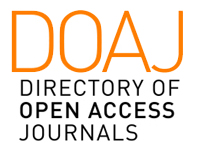Post-colonial occupational therapy: Perspectives from an old empire
DOI:
https://doi.org/10.25214/25907816.12Palabras clave:
colonialismo, salud, migración, colectivismo, ocupaciónResumen
Este artículo explora el post colonialismo desde la experiencia de un profesional británico blanco que creció en la década de los sesentas, al final de la época colonial. Utilizo una narrativa basada en la experiencia personal de cómo este período, y sus influencias, han afectado mi desarrollo como terapeuta ocupacional, a través de la aplicación del proceso arqueológico 3P: Personal, Político y Profesional, como una herramienta sencilla para identificar una posición crítica. Partes de Europa están experimentando un fenómeno post-colonial de diversidad poblacional, el cual se ha convertido en un foco de atención cada vez mayor a raíz de las crisis migratorias causadas por conflictos e inestabilidad en el norte de África y Medio Oriente, así como de graves desigualdades en oportunidades. Muchos de estos migrantes han experimentado traumas psicológicos y físicos considerables, además de otros problemas de salud. Las condiciones clínicas no pueden ser vistas de forma aislada, sino ligadas a los entornos sociales y culturales complejos en los que surgen. Desde hace algún tiempo se ha hecho evidente la necesidad de que profesiones como la Terapia Ocupacional desarrollen habilidades para trabajar con diferentes personas y de reflejar la diversidad de la población.
Descargas
Referencias bibliográficas
Beagan, B.L., & Chacala, A. (2012). Culture and diversity among occupational therapists in Ireland: when the therapist is the 'diverse' one. British Journal of Occupational Therapy, 75(3), 144-151.
Bennett_Coverley, L. (1966). Jamaica La- brish. London: Harper Collins
Block, R, Kasnitz, D., Nishida, A., & Pollard, N. (Eds). (2015). Occupying Disability: Critical Approaches to Community, Justice and Decolonizing Disability. New York: Springer
Castro, D., Dahlin-lvanoff, S., & Mártens- son, L. (2016). Development of a Cultural Awareness Scale for Occupational Therapy Students in Latin America: A Qualitative Delphi Study. Occupational Therapy International. DOI: 10.1002/ oti.1424.
Evans, G., & Tilley, J. (2015) The new class war: Excluding the working class in 21st- century Britain. Juncture. 21(4), 298-304.
Fair, A., & Barnitt, R. (1999). Making a Cup of Tea as part of a Culturally Sensitive Service. British Journal of Occupational Therapy 62 (5), 199-205.
Ferguson, N. (2004). Empire: The Rise and Demise of the British World Order and the Lessons for Global Power. Basic Books.
Frank. G., & Zemke, R. (2008). Occupational therapy foundations for political engagement and social transformation. In: N. Pollard, D. Sakellariou, F. Kronen- berg. (Eds.) A political practice of occupational therapy (pp. 111-36). Edinburgh: Elsevier.
Freire, R (1972). Pedagogy of the oppressed Harmondsworth. UK: Penguin.
Galhiego, S. (2011). What needs to be done? Occupational therapy responsibilities and challenges regarding human rights. Australian Journal of Occupational Therapy 58(2), 60-6.
Garda-Ruiz, S., González, M.S., Carrillo- Araujo M.V., & Cobos-Baquero, A.M. (2008). Cuadernos de Discapacidad y Rehabilitación Basada en Comunidad. Bogotá: Secretaría Distrital de Salud, Dirección de Salud Pública.
García-Ruiz, S. (in press). Occupational Therapy in a Glocalized World. In D. Sakellariou, N. Pollard (eds.) Occupational Therapies Without Borders: integrating justice with practice, 2e. Edinburgh: Elsevier Science.
Gilroy, R (2012). My Britain is fuck all' zombie multi cultural ism and the race politics of citizenship. Identities: Global Studies in Culture and Power. 19(4), 380-397.
Goldblatt, E. (2007). Because we live here: Sponsoring literacy beyond the college curriculum. Hampton Pr.
Guajardo, A. (2011). Construcción de identidades, episteme y prácticas en Terapia Ocupacional en América Latina. In: Congresso Brasileiro de Terapia Ocupacional, 12.; Congreso Latinoamericano De Terapia Ocupacional, 9. Sao Paulo: ATO ESP
Guajardo, A. (2013). Terapia Ocupacional: apuntes de una historia inconclusa. In: Congreso Chileno de Terapia Ocupacional, 1.; Jornadas Nacionales De Terapia Ocupacional, 8., Viña del Mar: Colegio de Terapeutas Ocupacionales de Chile.
Hammell, K.W. (2004). Dimensions of meaning in the occupations of daily life. Canadian Journal of Occupational Therapy, 71(5)296-305.
Hammell, K.W. (2009). Sacred texts: a sceptical exploration of the assumptions underpinning theories of occupation. Canadian Journal of Occupational Therapy, 76(1), 6-22.
Hammell, K.W. (2011). Resisting theoretical imperialism in the disciplines of occupational science and occupational therapy. British Journal of Occupational Therapy, 74(1), 27-33.
Hammell, K.W., Miller, W.C., Forwell, S.J., Forman, B.E., & Jacobsen, B.A. (2012). Sharing the agenda: pondering the politics and practices of occupational therapy research. Scandinavian Journal of Occupational Therapy, 19, 297-304.
Ikiugu, M., & Pollard, N. (2015). Meaningful living through occupation. London: Whiting and Birch.
Kronenberg, E, Simo-Algado, S., & Pollard, N. (Eds.). (2006). Terapia Ocupacional Sin Fronteras - aprendiendo del espíritu de supervivientes. Madrid: Panamericana.
Kronenberg, F., Pollard, N., & Sakellariou, D. (Eds.). (2011). Occupational therapies without borders: Towards an ecology of occupation-based practices (Vol.2). Edinburgh: Elsevier Science.
Law, M. (2002). Participation in the occupations of everyday life, 2002 Distinguished Scholar Lecture. American Journal of Occupational Therapy, 56, 640-649.
Lee, N., Sissons, R, & Jones, K. (2013). Wage inequality and employment polarisation in British cities. London: The Work Foundation.
Lentin, A., & Tilley, G. (2012). The crisis of 'multiculturalism' in Europe: Mediated minarets, intolerable subjects. European Journal of Cultural Studies 15(2), 123-138.
Lucumí D.I., Gómez, L.F., Brownson R.C., & Parra, D.C. (2014). Social capital, socioeconomic status, and health-related quality of life among older adults in Bogotá (Colombia). Journal of Aging and Health, 27(4), 730-750.
Meló, J.B. (2015). The intersection of race, class, and ethnicity in agrarian inequalities, identities, and the social resistance of peasants in Colombia. Current Sociology 63(7), 1017-1036.
Morley, D., & Worpole, K. (Eds.). (2009). The republic of letters (2nd ed.). Philadelphia: New Cities Community Press/Syracuse University Press.
Murray, C. (1990). The emerging British underclass. London: Institute of Economic Affairs, Health and Welfare Unit.
Navas, A. (2015) Palabras de Aida Navas durante el celebración de los 45 años de egreso del primer grupo de terapeutas ocupacionales de la Universidad Nacional de Colombia. Revista Ocupación Humana, 15(1), 48-54.
Nelson, A. (2007). Seeing white: a critical exploration of occupational therapy with indigenous Australian people. Occupational Therapy International, 14(4), 237- 255.
Office of National Statistics. (2015). 207 7 Census analysis: Ethnicity and religion of the non-UK born population in England and Wales: 201. Retrieved from: http:// www.ons.gov.uk/peoplepopulationand- community/culturalidentity/ethnicity/ articles/2011 censusanalysisethnicityandr eligionofthenonukbornpopulationinengla ndandwales/2015-06-18
Ó Tuama, S., & Kinsella, T. (Eds.). (1981). An Duanaire, 1600-1900: Poems of the Dispossessed. Portlaoise, Ireland: Dolmen.
Owens, L. (in press). Our professional existence is political: critical reflections on 'seeing white' in occupational therapy. In N.
Pollard, D. Sakellariou (eds.) Occupational Therapies Without Borders: integrating justice with practice, 2e. Edinburgh: Elsevier Science.
Pantazis, C. (2016). Policies and discourses of poverty during a time of recession and austerity. Critical Social Policy 36(1), 3-20.
Pollard, N., Kronenberg, E, & Sakellariou D. (2008). A political practice of occupational therapy. In Pollard, N., Sake- llariou, D., & Kronenberg, F. (Eds.) A Political Practice of Occupational Therapy. (pp. 3-20). Edinburgh: Elsevier/Churchill Livingstone.
Pollard, N. (2010). Occupational narratives, community publishing and worker writing groups: Sustaining stories from the margins. Groupwork, 20(1), 9-33.
Pollard, N., & Sakellariou, D. (Eds.). (2012). Politics of Occupation-Centred Practice. Oxford: Wiley.
Pollard, N, & Sakellariou, D. (2014) The occupational therapist as a political being. Cadernos Terapia Ocupacional da UFS- Car, 22(3) 643-652.
Pollard, N. (2016). A narrative of cultural occupational performance. Cadernos Tera-pia Ocupacional da UFSCar, Sao Carlos, 24(1), 191-203.
Ramdin, R. (1987). The making of the Black working class in Britain. Aldershot: Gower.
Sakellariou, D., & Pollard, N. (eds.). (in press). Occupational Therapies Without Borders: integrating justice with practice, 2e. Edinburgh: Elsevier Science.
Savage, M., Devine, E, Cunningham, N.,Taylor, M., Li, Y, Hjellbrekke, J, &Miles, A. (2013). A new model of social class? Findings from the BBC's Great British class survey experiment. Sociology, 47(2), 219-250.
Sevlon, S. (1956). The lonely Londoners. London: Heineman.
Smart, R (2005). A beginner writer is not a beginner thinker. In F. Kronenberg, S. Simo-Algado, N. Pollard (Eds.) Occupational therapy without borders, (pp. 46- 53). Oxford: Elsevier.
Stadnyk, R., Townsend, E., & Wilcock, A. (2010). Occupational justice. In C. H. Christiansen & E.A. Townsend (Eds.), Introduction to occupation: The art and science of living (2nd ed., pp. 329-358). Upper Saddle River, NJ: Pearson Education
Stanley, J. (1997). To celeb-rate and Not Be- Moan. In: R Mahony, C. Zmroczek (Eds.) Class matters/working class' women's perspectives on social class, (pp. 175- 189). London: Taylor and Francis.
Stouffer, S. (in press). Working as an Underground Occupational Therapist/Oc- cupational Scientist. In D. Sakellariou,N. Pollard (eds.) Occupational Therapies Without Borders: integrating justice with practice, 2e. Edinburgh: Elsevier Science.
Taylor-Gooby, R (2013). Future Identities: Changing identities in the UK - the next 10 years. London: HM Government office for science.
Thiongo, N. (2009). Something torn and new: An African renaissance. New York: Basic Books.
Townsend, E. (1998). Occupational therapy language: Matters of respect, accountability and leadership. Canadian Journal of Occupational Therapy, 65(1), 45-50.
Whiteford, G., & Townsend, E. (2011). Participatory occupational justice framework (POJF) 2010: Enabling occupational participation and inclusion. In F. Kronenberg, N. Pollard, D. Sakellariou (Eds.) Occupational therapies without borders: Towards an ecology of occupation-based practices (pp. 65-84). Edinburgh: Elsevier.
Williams, R. (1983). Keywords. London: Fontana.
Witte, R. (2014 [1996]). Racist violence and the state: A comparative analysis of Britain, France and the Netherlands. London: Routledge.
Yerxa, E. (2000). Occupational science: a renaissance of service to humankind through knowledge Occupational Therapy International, 7 (2), 87-98.
Zephaniah, B. (1985). The Dread Affair: Collected Poems. London: Arena
Descargas
Publicado
Cómo citar
Número
Sección
Licencia

| Estadísticas de artículo | |
|---|---|
| Vistas de resúmenes | |
| Vistas de PDF | |
| Descargas de PDF | |
| Vistas de HTML | |
| Otras vistas | |











